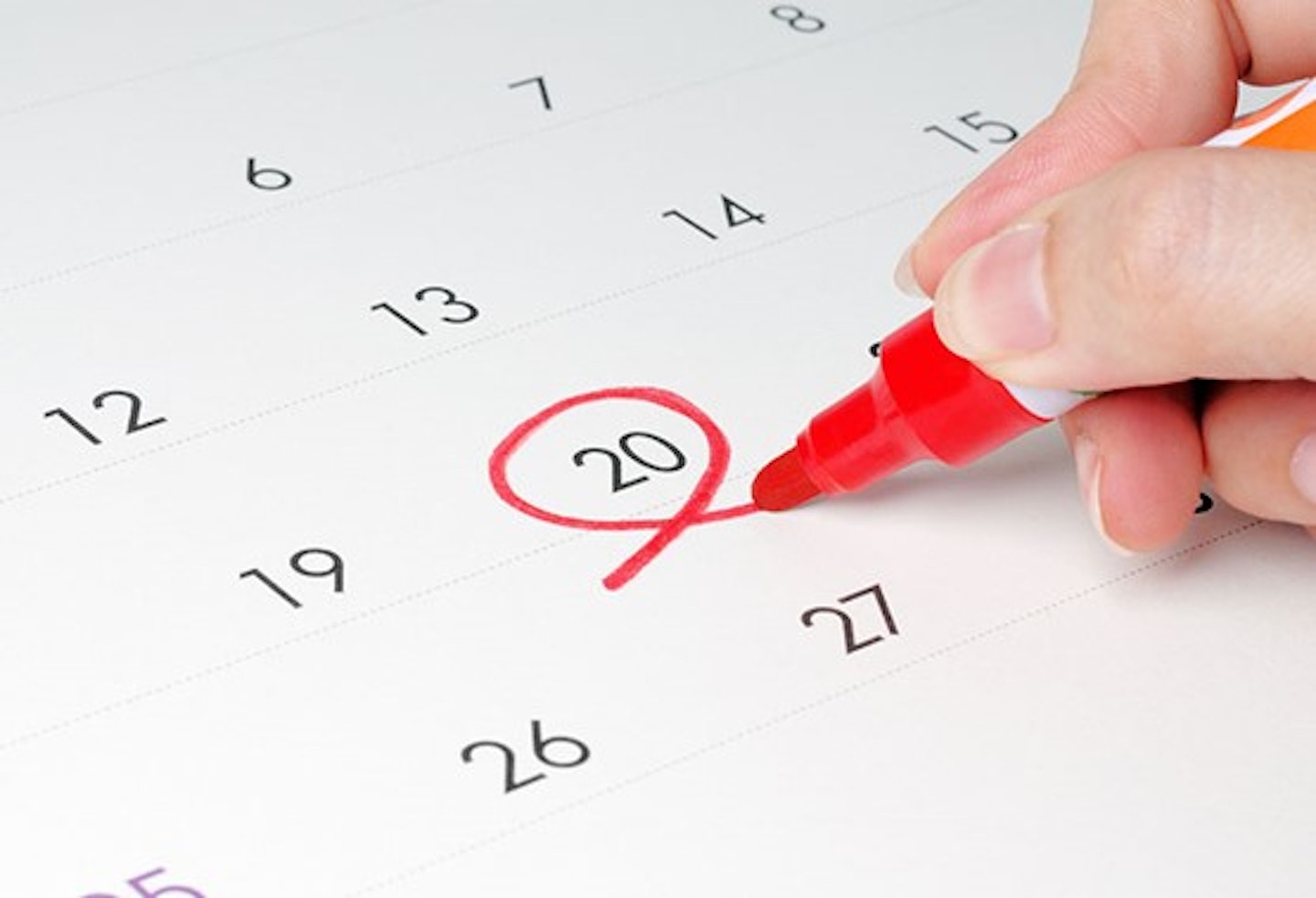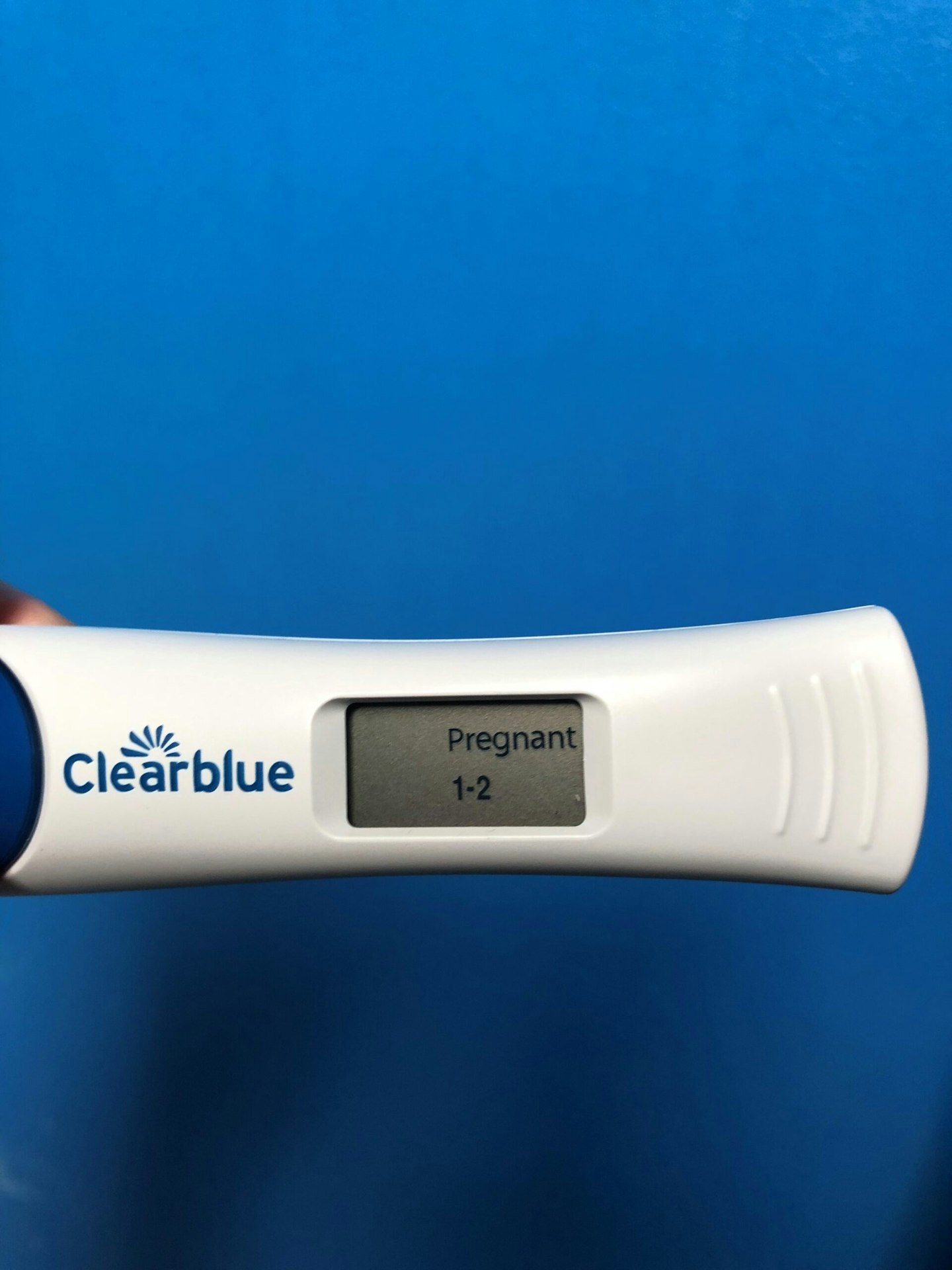Things are about to get exciting, mama-to-be; you're 1 week pregnant! There’s no embryo yet; it's just your egg and, hopefully, sperm ready to fertilise it. However, this will be the week following your last period, and your body is preparing to ovulate.
So, even though you haven’t actually conceived at this point, you are considered 1 week pregnant. If you're pregnancy is planned, now is a good time to get your body and mind prepared for pregnancy: tracking your ovulation days, taking ovulation tests and taking a prenatal vitamin are all things to think about. If you've missed a period or have just taken a pregnancy test and got a positive line, you're further ahead than 1 week pregnant, you're more like 4 weeks along, so you have some reading and catching up to do.
How many months is 1 week pregnant?
Counting pregnancy in weeks and months can get a little confusing. At one week pregnant, you're not quite a full month into your pregnancy. Pregnancy is typically measured in weeks, with the first month of pregnancy being roughly equivalent to 4.3 weeks.
Baby Development at 1 Weeks Pregnant
How big is my baby at 1 week?
At one week pregnant, there's no baby just yet. In fact, you're not actually pregnant. Your body is simply going through its usual process of shedding the uterine lining from the last cycle, which is what happens during your period.
Where is baby located at 1 week pregnant?
At 1 week pregnant, your body is preparing for ovulation and no fertilisation has happened yet. Fertilisation typically happens around week 2 or 3, when the sperm meets the egg in the fallopian tube. The fertilized egg then travels to the uterus, where it implants around week 4.Y our baby is still a cluster of cells at week 1 at this early stage, but over the next few weeks and months, they'll begin laying the groundwork for growing their organs and tiny features. When you’re pregnant (around four weeks pregnant), the fertilised egg will settle into the uterus, starting your baby's development.
Feeling excited? Why not take a look at what to expect at two weeks pregnant?
1 week pregnant scan
You are not likely to have an ultrasound scan when you are 1 week pregnant. However, if you are currently going through IVF or seeing a fertility specialist, you may have had an ultrasound to check for fibroids around this time during your cycle. This is to see how many follicles (which grow into eggs) are currently in your ovaries and to see the thickness of your uterine lining.
Your Body at 1 Week Pregnant
The average menstrual cycle lasts around five to seven days. During this time, you shed a combination of the lining of your womb (called the endometrium) and actual blood.
Here’s the scientific part: the hormone changes that stimulate your period also encourage the brain to produce luteinising hormone (LH) and follicle-stimulating hormone (FSH), both of which are key to helping you get pregnant.
1 week pregnant symptoms
When you're one week pregnant, you might experience the below symptoms. Don't worry if you don't, though - it's early days, and not all of these symptoms are unique to pregnancy either.
Vaginal bleeding - the vaginal bleeding will come as your body is now shedding the uterine lining.
Stomach pain, cramps and pain in the lower back - shedding your lining comes with some pain in your lower back as your uterus contracts.
Bloating - you will likely feel a bloated tummy, which you may be used to experiencing before your period.
Mood swings - your emotions will be rather high, all thanks to your hormones.
Headaches - some women will experience headaches as they do with periods.
Acne or pimples - whether you had acne as a teen or not, you might get acne or pimples early on in pregnancy. Try natural solutions to treat it.
• Fatigue - Fatigue can happen at any time during pregnancy, but it is most common early on.
Getting pregnant timeline
Day 1: The first day of your period
Day 14: You ovulate. This could happen slightly before or after, depending on the length of your menstrual cycle.
24 hours after ovulation: If you have had sex in the last few days without using contraception, the egg is fertilised by sperm.
5-6 days after ovulation: The fertilised egg implants in the womb - you are now pregnant.

Looking After You at 1 Week Pregnant: What You Can Do To Help Your Body Conceive
Get to know when you're ovulating
Knowing exactly when you’re ovulating can help you conceive. We’ve developed a handy ovulation calculator.
Start taking folic acid
To protect your future baby from spina bifida, medical experts recommend you start taking folic acid for three months before you want to conceive. Research also suggests that women who get 300 micrograms of folic acid reduce the risk of neural tube defects by up to 70 per cent.
Eat a healthy, balanced diet
Your fertility diet must give you all the nutrients you need, especially zinc.
Cut down on the caffeine
Your morning latte is fine but try and limit your caffeine consumption to no more than three cups a day.
Quit smoking
Quit smoking and cut down on alcohol if you’re trying to get your body ready for a baby.
Protect his sperm
Discourage him from taking steamy hot showers or baths, as this can affect sperm quality. The bath water should be no hotter than the body temperature for optimum sperm. It’s also a good idea for you to turn that electric blanket off and stop putting your laptop on your lap – studies show prolonged and excessive heat can slow down sperm collection.
It's time to get zen
Whether you book a few extra yoga classes or download a meditation app. If you’re stressed, you’re biologically less likely to get pregnant.
Book a doctor's appointment
Although you’re not pregnant, it’s a good idea to schedule an appointment and talk about prescription drugs and environmental and lifestyle hazards that could all be putting your baby-to-be at risk.
When to take a pregnancy test
You can take a pregnancy test up to five days before your period is due. During the early days of pregnancy, your HCG levels rise rapidly, so if you want as accurate a result as possible, do the pregnancy test on the day of your missed period.

What does 1-2 weeks pregnant mean on Clearblue pregnancy test?
Lots of parents opt for a Clearblue pregnancy test, as the digital test shows how far along in your pregnancy you're. The Clearblue website explains that if the test result is 'Pregnant,' a numerical result: "1-2," "2-3," or "3+" is also displayed, indicating that conception occurred 1 to 2 weeks ago, 2 to 3 weeks ago, or 3 or more weeks ago.
1 week pregnant FAQs
What should I avoid at 1 week pregnant?
Are you still smoking, drinking and taking in excessive amounts of caffeine? You may want to rethink your intakes of each of these, especially if you're planning to get pregnant or if you have just tested positive on a pregnancy test. Your first trimester of pregnancy starts from week 1 to week 12, which is when your baby's major organs and systems are developing, so it is really important to take care of yourself.
What is the difference between a period and implantation bleeding?
It can be really tricky to tell the difference between your period and implantation bleeding, which is believed to sometimes happen when a fertilised egg attaches to the lining of the uterus. However, there are some clues that can help you figure out the difference. Implantation bleeding tends happen six to 12 days after you ovulate. It may look like spotting and have more of a brown/pink tinge to it and doesn't usually get heavier like your period does.
Hannah Carroll is our Senior Digital Writer at Mother&Baby. In her capacity, she curates top-notch listicles, crafts insightful how-to guides, and delivers expert product reviews. As a mother of three, Hannah draws upon her comprehensive understanding of all facets of family life to bring true insight into all the products that make running a home easier.
